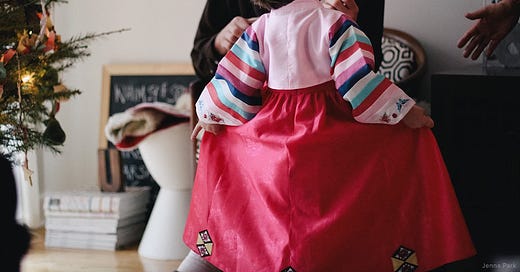Sometimes I forget that I’m an immigrant and that my children are second generation Americans. This is what happens when the entirety of my early memory bank is seeded only with memories of New York City; this is what happens when I have no recollection of my existence in South Korea at all. For most of my life up until maybe six years ago, Korea was a country where I was born, but nothing more.
I have written about being a 1.5 generation Asian American before: the perpetual internal and external questioning of where you belong and where you don’t, of not being enough of one culture or the other. For someone who came to the U.S. as young as I did, I often felt like I was neither a first generation or a native born American. But even the term “1.5” asserts a state of in-betweeness within an already liminal existence as an immigrant. When you don’t have any memories of your home country and never fully constructed sentences in that language, do those years even count?
Raising biracial kids adds another complex layer to our inter-generational story, especially since my first-born is white passing and doesn’t much resemble me or my side of the family. I remember that first week of being a new mother, looking at my child and marveling how “I pushed out a white baby!” Genetics is wild. I have been mistaken as the nanny far too many times while pushing her in a stroller around my Brooklyn neighborhood. Most recently, I was hilariously mistaken as her “friend” at the doctor’s office.




